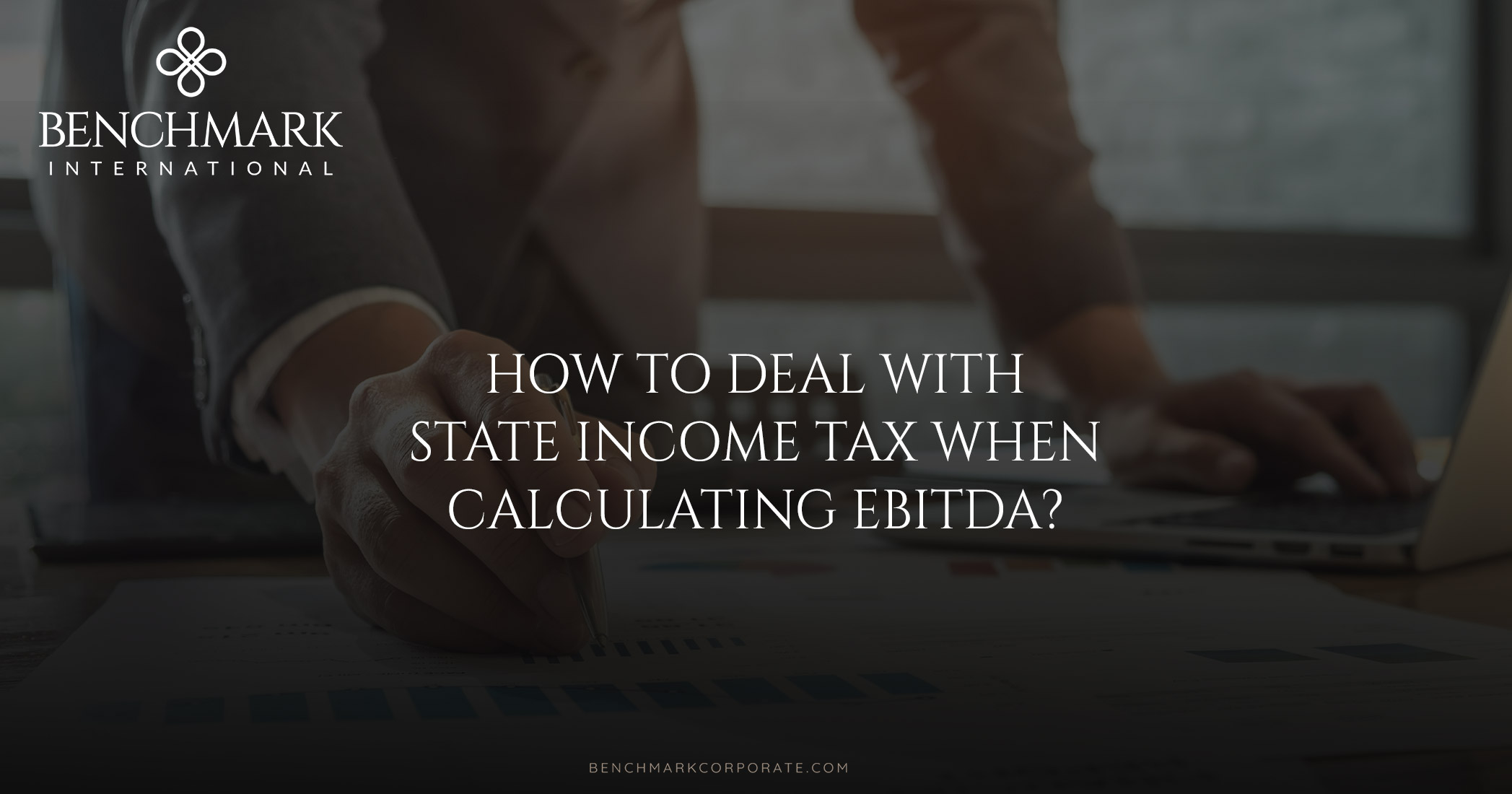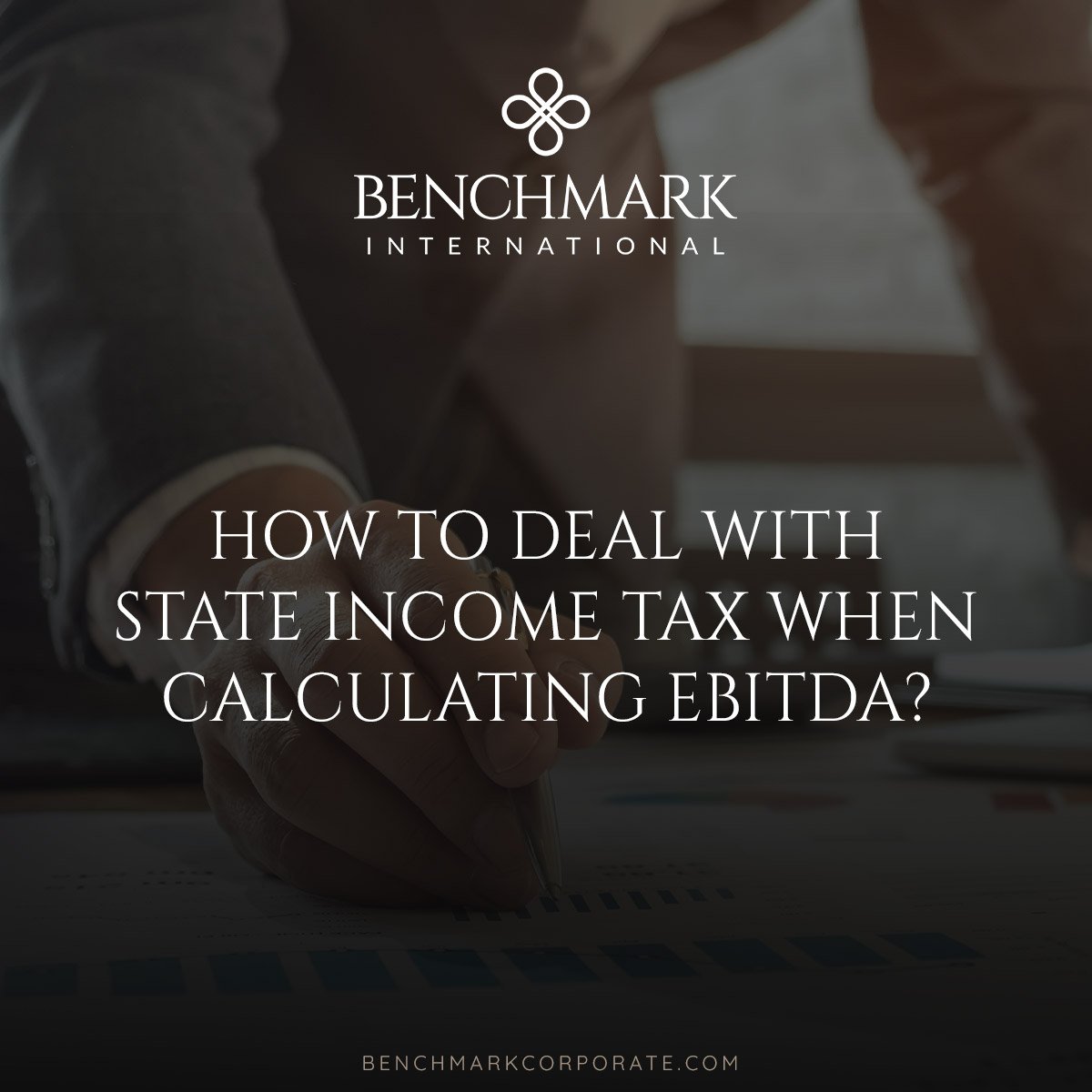
As we all know, EBITDA is not defined under either accounting’s Generally Accepted Accounting Principles (GAAP) or International Financial Reporting Standards (IFRS). What’s worse is that there is no other evenly mildly authoritative source that delves into the specifics of the definition beyond much more than a one-word description of each letter’s meaning.
Despite its murky definition, EBITDA remains the lengua franca between buyers and sellers when discussing valuation of privately held companies. Regardless of the true manner in which the seller sets the minimum price for which she will part with her business and whichever of the likely more academic methods the buyer has used to determine its maximum purchase price, the parties tend to lob multiples of EBITDA back and forth across the negotiating table.
While the exact meaning of each letter in the acronym is worthy of its own discussion, there is perhaps no more frustrating issue than how to deal with state income tax in the “T” portion of the term. The frustration arises because some parties refuse to acknowledge that what is so eminently clear - that state income taxes should be treated in an identical manner to the treatment of federal income taxes.
The very purpose of using EBITDA in these discussions is to place the concerned enterprise in neutral position with regard to capital structure, accounting decisions, and tax environments. This is why, and all parties do agree on this point, federal income taxes would always be added back to earnings when making this calculation. The proponents of not adding back state income tax are never able to explain why differing treatments would result in better serving the objective of using EBITDA.
State income taxes, like federal income taxes, are only due when a business is profitable. A business’s profitability is effected by, among other things, its capital structure (because more debt means more interest and interest reduces income and is therefore a tax shield whereas dividends do not and are not) and its depreciation (because, again, depreciation reduces earnings and serves as a tax shield). These factors have the same effect on state income taxes as they do federal income taxes. Thus, the amount of federal and state income tax a business pays in a given year will vary depending on the quantity and rate of loans outstanding that year and the method and amount of depreciation employed (i.e., the entity’s capital structure and accounting decisions). The amount of state income tax paid in a given measurement period is no more or less a function of the business’s operations than is its federal tax paid over that same period.
Further, while also not defined under GAAP, “profit before tax” (PBT) is a term more commonly used by accountants than EBITDA, appearing on a fair number, if not the majority, of companies’ routine income statements. As accountants will always take this measurement before including the expense of both federal and state income taxes, why should the same logic not apply to EBITDA? EBITDA is, of course, simply PBT minus interest, depreciation and amortization charges.
Proponents of disparate treatment suggest that the state income tax is an unavoidable cost of doing business. But this argument fails for two reasons. First of all, it is not unavoidable. As discussed above, high debt levels and aggressive depreciation can allow the minimization or avoidance of state income tax (just as they can for federal income tax). But more significantly, it is not the job of EBITDA to take out only the “avoidable cost of doing business.” Eliminating 401k matching, reducing salaries, renegotiating a better lease, or relocating to smaller premises may also be ways to reduce the cost of doing business. Yet no one proposes adding benefits, salaries, and rent to EBITDA because they are wholly or partially “avoidable”.
Continuing with this logic, state income taxes are avoidable by changing domicile just as federal income taxes are avoidable by changing domicile. Ask Tyco, Fruit of the Loom, Sara Lee, Seagate or any of the other 43 formerly US companies that the Congressional Research Service identified as redomiciled for this purpose in the decade leading up to the 2014 election. Would the EBITDA of any of these companies not have included an addback for federal income tax because it was an “avoidable cost of doing business”?
Ah, state income tax, the poor runt of the litter in the world of finance. Too small to be taken seriously, too complicated to be understood, and too varied to warrant the time. Five states have no such tax on corporate entities. Most of the other 45 do not impose it on entities making federal S-elections. Those who do impose it do so in many different ways. And the names are so confusing, often being called by another name that allows the state’s development board to claim they do not have a state corporate income tax. Capped at 6% or less in most states, it pales in comparison to the 35% federal rate. (Though Iowa hits double digits at 12%, it is the only state to do so and there exists no documented record of anyone ever buying a business in Iowa.) How unfortunate that this scrawny beast seems to raise its head so uncannily when a deal is on the line, in those final days when the parties are so close yet so far away on valuation and the closing hinges on the fate of this oft-misunderstood adjustment to earnings.
WE ARE READY WHEN YOU ARE.
Call Benchmark International today if you are interested in an exit or growth strategy or if you are interested in acquiring.
Americas: Sam Smoot at +1 (813) 898 2350 / Smoot@BenchmarkCorporate.com
Europe: Carl Settle at +44 (0)161 359 4400 / Settle@BenchmarkCorporate.com
Africa: Anthony McCardle at +2721 300 2055 / McCardle@BenchmarkCorporate.com
ABOUT BENCHMARK INTERNATIONAL
Benchmark International’s global offices provide business owners in the middle market and lower middle market with creative, value-maximizing solutions for growing and exiting their businesses. To date, Benchmark International has handled engagements in excess of $5B across 30 industries worldwide. With decades of global M&A experience, Benchmark International’s deal teams, working from 13 offices across the world, have assisted hundreds of owners with achieving their personal objectives and ensuring the continued growth of their businesses.
Website: http://www.benchmarkcorporate.com
Blog: http://blog.benchmarkcorporate.com/
 Benchmark International
Benchmark International  Benchmark International
Benchmark International 





